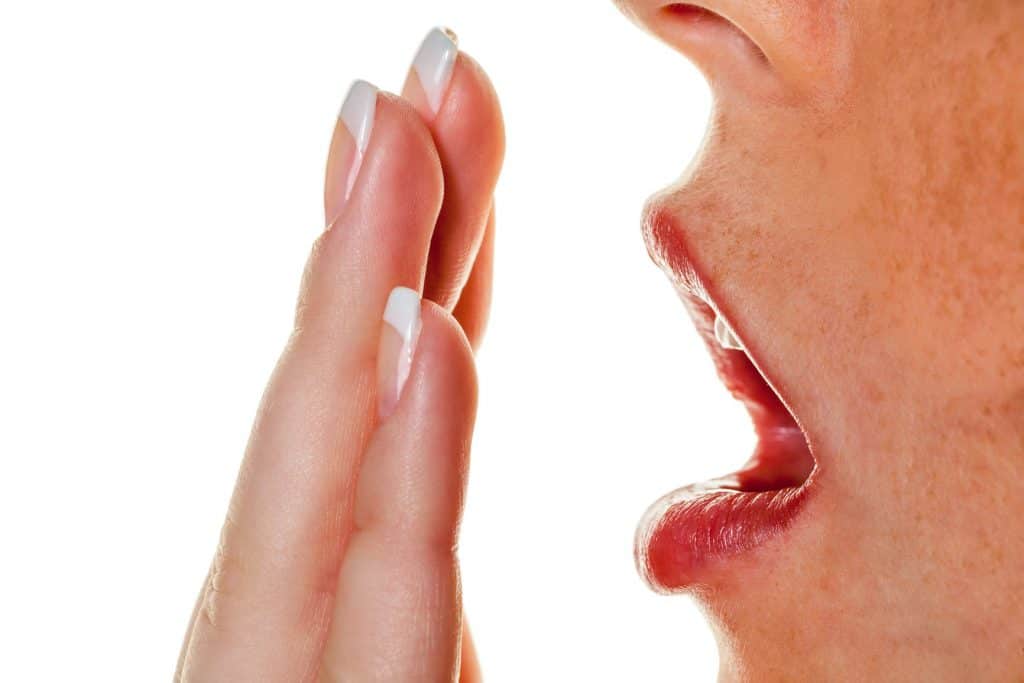

 Want to earn continuing education credit for this article? Learn more.
Want to earn continuing education credit for this article? Learn more.
Bodyworkers are generally aware that they must take care of themselves in order to care for others. However, issues that do not pose an obvious health concern can easily go overlooked. While halitosis may not be prioritized in the same way that arthritis, strep throat or an autoimmune disease would be, it can have a negative effective on a massage therapists’ working relationships. Impacting massage sessions because therapists must work in such close proximity to their clients, halitosis – or chronic bad breath – can be a major obstacle for anyone working in the healthcare industry.
An estimated 50 to 65 percent of the population is affected by halitosis, an oral health condition characterized by consistently odorous breath. While bad breath plagues just about everyone at one time or another, chronic bad breath can be a devastating social disability. More than a few people have been denied employment, failed in business and relegated to low social status because of it. Unbeknownst to them, massage therapists who have halitosis are likely to lose clients because of their breath’s odor.
Sources of Halitosis
Halitosis can have many causes, but up to 90 percent of cases are thought to originate from sources in the mouth. Oral origins of halitosis may include:
- poor oral hygiene
- periodontal disease
- coatings on the tongue
- impacted food
- faulty dental restorations
- throat infections
Another oral origin, xerostemia, is a frequent cause of halitosis. Also known as a dry mouth, a lack of saliva allows dead cells to build up and cause bad breath. Sleeping with the mouth open, smoking and certain medications can cause xerostemia.
The remaining 10 percent are usually due to systemic disorders, such as peptic ulcers, ear/nose/throat or lung infections, liver or kidney disease, diabetes or cancer.
6 Tips for Halitosis Prevention
Seeing a dentist or physician about the cause of your malodorous breath can reveal its underlying cause – and such a diagnosis could lead to a curative treatment. For those who do not have a systemic disorder causing their halitosis, the following may be helpful:
- Avoid offensive foods and beverages – This might include alcohol, garlic, onions, cheese, orange juice and sodas – including diet ones.
- Brush and floss – At the very least, brush for two to three minutes after every meal and floss your teeth once a day.
- Tongue brushing – Because bacteria often collect on the tongue, gently brush your tongue to remove dead cells, including the back of the tongue.
- Hydrate – Drink plenty of water to keep your mouth moist and clean.
- Dentistry – Take care of your teeth with twice annual dental checkups and thoroughly clean any oral hardware (dentures, bridges or removable braces) each day.
- Moisten your mouth – Suck on sugarless candy or mints or chew sugarless gum to stimulate saliva production, which helps wash away food particles and bacteria.
In addition, some people might consider a nutritional supplement or natural oral rinse to help with malodorous breath. Supplementing with Coenzyme Q10 or folic acid may be helpful to those with gum disease. In addition, a drop or two of tea tree essential oil, peppermint or thyme oil in warm water may constitute a useful oral rinse for killing bacteria.
Due to the physical proximity with which bodywork is performed, halitosis can be a major problem for those in the massage therapy profession. Even after receiving a fantastic, relaxing, therapeutic massage, some clients might be hesitant to schedule another session if their therapist had bad breath. Thus, bodyworkers affected by this common problem could easily see a surge in their business upon finding the cause of their bad breath and implementing halitosis prevention.
Earn continuing education credit for this article contained in our Health Maintenance – Body & Mind series. Click here to enroll.












3 Responses to 6 Tips for Bodyworkers to Prevent Bad Breath